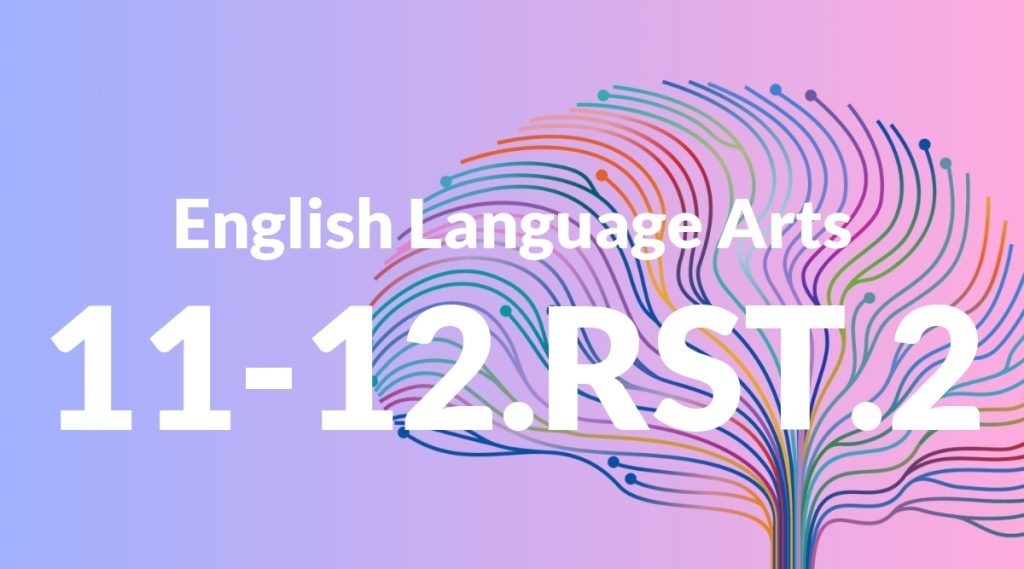Standard: 11-12.RST.2 – Determine the central ideas or conclusions of a text; summarize complex concepts, processes, or information presented in a text by paraphrasing them in simpler but still accurate terms.
Grade level: Grade 11-12
Subject: English Language Arts
Domain: Science & Technical Subjects
Teacher Overview
This standard emphasizes the ability to distill complex information into clear, accurate summaries. Mastery of this skill is crucial for students as they navigate increasingly sophisticated texts in both academic and real-world contexts. Students should already be adept at identifying main ideas and supporting details in simpler texts and have basic summarization skills.
After mastering this standard, students will be better equipped to analyze and communicate complex information, a skill critical for success in higher education and professional environments.
Common Misconception 1
A common misconception is that summarizing means copying text verbatim. This is incorrect because summarizing requires students to use their own words to convey the main ideas.
Intervention 1
To address this, encourage students to practice paraphrasing paragraphs and then comparing their summaries to the original text to ensure accuracy without direct copying.
Common Misconception 2
Another misconception is that summarizing complex texts means oversimplifying and losing important details. This is incorrect because effective summarization retains essential details while simplifying the language.
Intervention 2
To remediate this, provide examples of well-summarized texts and have students practice summarizing with a focus on retaining key details.
Prerequisite Knowledge
Students should be able to identify main ideas and supporting details in simpler texts and have basic summarization skills.
Subsequent Knowledge
Students will develop advanced analytical skills, enabling them to interpret and communicate complex information more effectively in both academic and professional settings.
Instructional Activities
- Practice summarizing scientific articles
- Group discussions on paraphrasing techniques
- Workshops on identifying central ideas in technical texts
- Peer review sessions for summarization exercises




